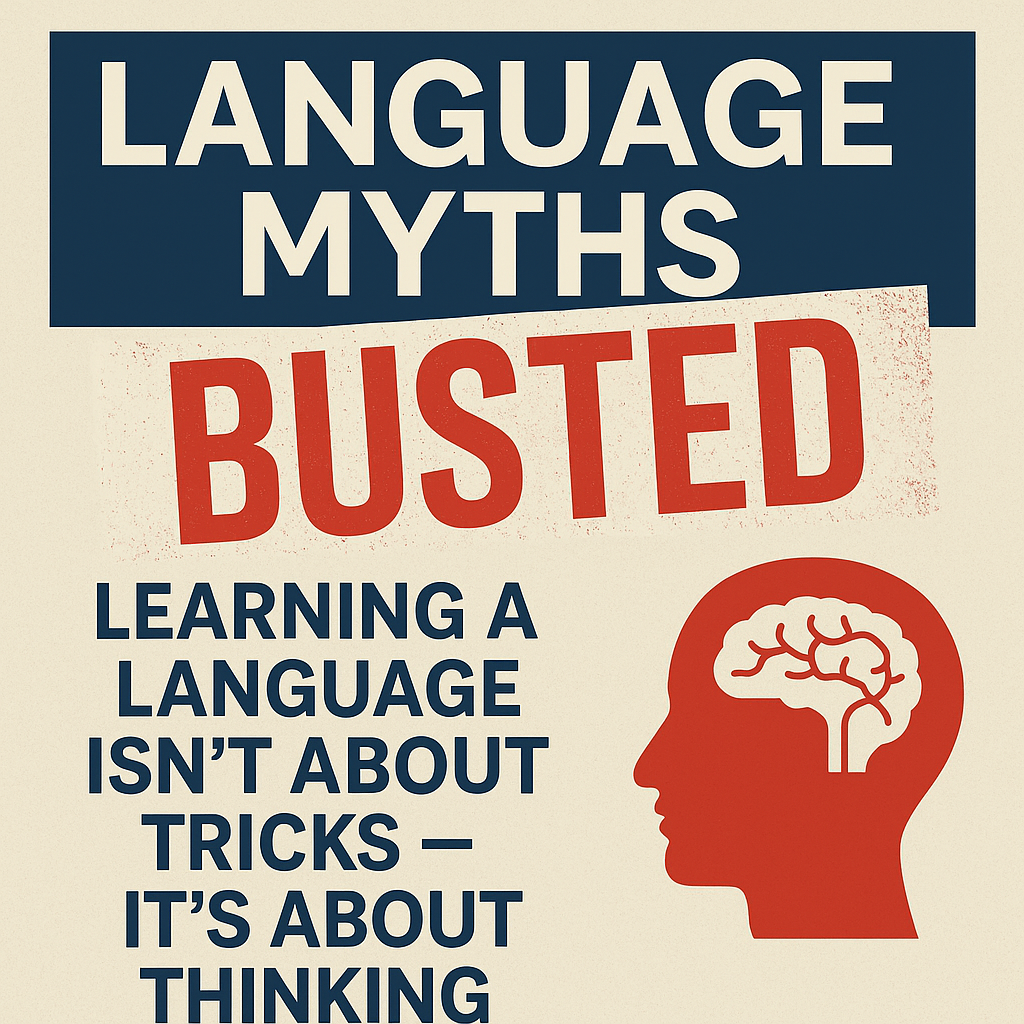Author’s Column — Tymur Levitin
Elija su idioma
Why So Many Students Feel Stuck
In almost every first consultation, I hear the same questions:
“How long will it take me to speak fluently?”
“Should I think in English?”
“Is grammar really necessary?”
“Can I just practice speaking?”
These aren’t bad questions — they’re just built on bad assumptions.
Because language learning today is full of quick promises and viral myths, often promoted as “hacks” or shortcuts.
In this article, I want to show why they don’t work — and what does.
Language Myths That Don’t Hold Up
Let’s break them down, one by one:
| Myth | Why It Fails | What Works Instead |
|---|---|---|
| “You can learn a language in 30 days.” | That’s not learning — that’s phrasebook survival. | Real understanding takes tiempo, guidancey repetition. |
| “Think in English!” | Most learners freeze when forced to translate thought patterns. | First, think clearly in your own way. Then build the sentence with logic. |
| “Just speak more — grammar doesn’t matter.” | Quantity without clarity leads to fossilized mistakes. | Speak when you’re ready to say something correctly. |
| “You need to live in the country.” | Many immigrants don’t speak the local language well even after years. | Structured input beats passive exposure every time. |
These myths come from a good place — people want fast results. But language doesn’t work like that. It’s not a game of tricks. It’s a system of thinking.
What Actually Works — and Why
Here’s what I teach my students from day one:
- Language is not memory — it’s Significado.
- Grammar is not torture — it’s lógica.
- Practice is good — but only when it’s conscious.
Let me give you one example.
❌ “I have come here yesterday.”
Many students say this because they learned “I have come” y "ayer" — both correct on their own.
But grammar is about structure y Significado, not blocks.
What actually works?
✅ “I came here yesterday.”
Because your brain understands time, sequence, and structure.
I teach people to see what they’re saying.
To know why one word works and another doesn’t.
That kind of learning lasts.
Learning = Thinking, Not Copying
Language is not mimicry. It’s not repeating what a native speaker says like a parrot.
It’s building a sentence from your own intention.
And that’s the biggest myth of all —
that fluency is about sounding like someone else.
❝Learning a language doesn’t mean copying native speakers.
It means becoming someone who can think, feel, and speak through that language.❞
You don’t need tricks.
You need clarity, structure, and trust in your process.
What We Believe at Levitin Language School
At our school, we don’t teach from templates.
We don’t chase TikTok tips or empty guarantees.
We work person by person, mind by mind.
You’re not a passive learner.
You’re an active thinker who deserves real guidance.
And we’re here for that — every step of the way.
Más información
- No memorice las listas de prefijos alemanes: escuche y comprenda
- Rethinking German Word Order: Cause ⇄ Effect and the Two Faces of “Trotzdem”
© Tymur Levitin — Founder, Director & Head Teacher
Levitin Language School / Start Language School by Tymur Levitin
Aprendizaje global. Enfoque personal. ✅
🔷 Rubric:
Author’s Column → Language Myths Busted
(Published as part of the ongoing analytical series in the Author’s Column)
























